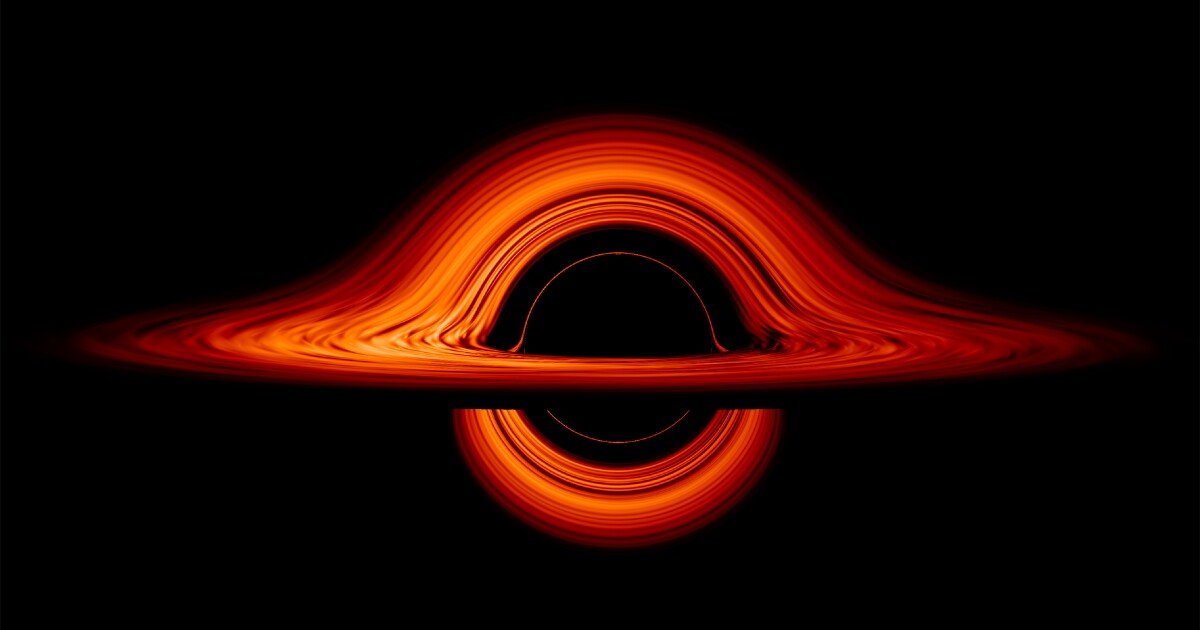A groundbreaking new study could finally provide an answer to one of astrophysics’ most perplexing mysteries — without having to add anything new to our current models. Physicists suspect that black holes may contain a strange form of energy that is accelerating the expansion of the universe.
Astronomers have known that the universe is expanding since the late 1920s, and for decades it was assumed that the rate of this expansion would slow over time. After all, gravity pulls things closer together, and the gravitational pull of all matter in the universe was thought to pull everything with it.
But in the 1990s, astronomers using the Hubble Space Telescope made an unexpected discovery—just the opposite was true. The farther an object was from our vantage point, the faster it appeared to be moving away from us, indicating that the expansion of the universe was accelerating over time. With no explanation in models at the time, a force called “dark energy” was formulated to push everything away from everything else at an increasing rate.
Since then, astronomers have been looking for signs of this dark energy based on the properties it appears to have. And in a new study, an international team of scientists claim to have found evidence of where dark energy might be hiding — in black holes.
Contrary to what we might think, a vacuum isn’t entirely empty — random quantum fluctuations create something called vacuum energy, which exerts an outward pressure that could counteract gravity and fuel the expansion of the universe. Vacuum energy has been found in black holes in some models, and in the new study the team found the first observational evidence of it.
The astronomers first studied the evolution of supermassive black holes at the centers of galaxies over the past nine billion years. These black holes gain mass primarily by swallowing dust, gas, stars, and other black holes, but in some galaxies known as giant elliptical galaxies, this resource is drying up. Then the supermassive black holes in elliptical galaxies can be expected to stop growing.
The researchers compared the masses of these black holes in distant elliptical galaxies (seen as they were billions of years ago) to those closer to us in space and time. Indeed, the supermassive black holes in modern elliptical galaxies are between seven and twenty times more massive than they were nine billion years ago.
This suggests that supermassive black holes may also gain mass through another mechanism. And if they contain vacuum energy, they would both contribute to the expansion of the universe And also gain mass from the process, in a phenomenon called cosmological coupling.
The team says this is the first observational evidence that black holes contain vacuum energy, and when they added up the numbers, they found it could explain the amount of dark energy being measured in the universe today.
While there has been no shortage of other dark energy sources proposed, the team say this new model may be the most elegant. That’s because there’s nothing new to add to our existing models — the gap can be plugged by black holes, as predicted by Einstein’s general theory of relativity.
As an added bonus, the new model also explains another cosmological mystery. Current models assume that black holes compress whatever falls into them into an infinitely dense singularity, a point where the laws of physics break down. They should be mathematically impossible, so physicists either find workarounds for them or assume our models are incomplete. But if black holes contain vacuum energy, singularities need no longer exist, which could be a major breakthrough in our understanding and further evidence for the new model.
As intriguing as the study is, more research and observations are needed to confirm the model.
The research was published in two articles in The Astrophysical Journal and the Astrophysical Journal Letters. The team describes the work in the video below.
Explainer: First evidence that black holes are sources of dark energy
Source: UK Research and Innovation
Source: newatlas.com
Don’t miss interesting posts on Famousbio









